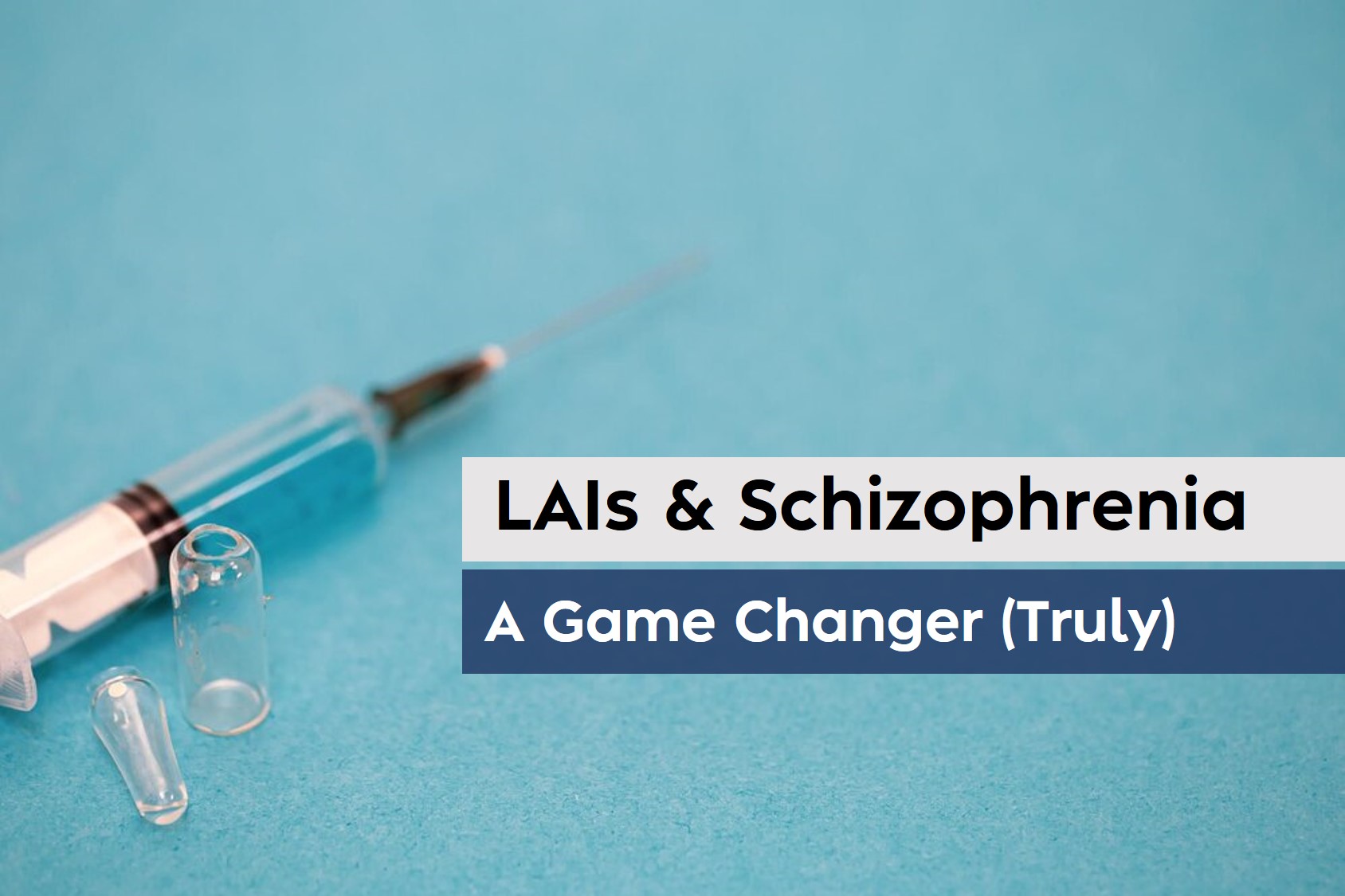Long-Acting Injectable Antipsychotics (LAIs) and their role in Schizophrenia: A Game Changer (Truly)
These medications are administered through injections that release the antipsychotic medication slowly over an extended period of time.
LAIs provide a consistent and reliable delivery of medication, ensuring that the therapeutic effects are maintained over several weeks or months.
One of the main benefits of LAIs is their ability to improve medication adherence in individuals with schizophrenia who struggle with taking oral medications consistently.
Non-adherence to medication regimens is a common challenge in the treatment of schizophrenia and can lead to symptom exacerbation, increased risk of relapse, and poorer overall outcomes.
LAIs help address this issue by eliminating the need for daily oral medications, reducing the burden of remembering and taking multiple pills.
LAIs also offer advantages in terms of convenience and flexibility.
With LAIs, individuals with schizophrenia do not need to worry about daily medication schedules and can focus on other aspects of their life. Additionally, LAIs provide a more discreet form of medication administration, as the injections can be given in a clinical setting or at home, maintaining privacy and reducing stigma.
Furthermore, LAIs can help address medication-related issues such as medication non- response or poor absorption. Some individuals may not experience optimal symptom control with oral antipsychotic medications due to factors such as individual metabolism or gastrointestinal issues.
LAIs can provide a more direct and consistent delivery of medication, potentially improving treatment outcomes for these individuals.
Dosing schedule
It is important to note that the use of LAIs should be discussed and decided upon in collaboration with mental health professionals. The specific choice of LAI and dosing schedule will depend on individual factors such as symptom severity, treatment history and patient preference.
Regular monitoring and follow-up with healthcare providers is essential to ensure the effectiveness and safety of LAIs.
Overall, long-acting injectable antipsychotics offer a valuable treatment option for individuals with schizophrenia who are non-compliant to treatment.
They provide a consistent and reliable delivery of medication, helping to maintain symptom control, reduce relapse rates, and improve overall outcomes in the management of schizophrenia.
Review of Scientific Literature on use of Long-Acting Anti Psychotic Medications in Schizophrenia
Study 1: “Long-Term Outcomes of Schizophrenia Patients Treated with Long-Acting Injectable Antipsychotics” – This study conducted a retrospective analysis of medical records from a large sample of schizophrenia patients who were treated with long- acting injectable antipsychotics (LAIs) over a period of 10 years. The study examined the long-term outcomes of these patients in terms of symptom control, relapse rates, hospitalization rates, and overall functioning. The findings suggested that the use of LAIs was associated with improved long-term outcomes, including reduced relapse rates and improved overall functioning compared to oral antipsychotic medications.
Study 2: “A Prospective Study on the Effectiveness of Long-Acting Injectable Antipsychotics in Schizophrenia Patients” – This prospective study followed a group of schizophrenia patients who were switched from oral antipsychotic medications to long-acting injectable antipsychotics. The study assessed the long-term effectiveness of LAIs in terms of symptom control, medication adherence, and quality of life. The results indicated that the use of LAIs was associated with better symptom control, improved medication adherence, and enhanced quality of life over a period of two years.
Study 3: “Long-Acting Injectable Antipsychotics and Treatment Outcomes in Schizophrenia: A Systematic Review and Meta-Analysis” – This systematic review and meta-analysis synthesized data from multiple studies to evaluate the long-term treatment outcomes of schizophrenia patients on long-acting injectable antipsychotics. The analysis included measures such as symptom severity, relapse rates, hospitalization rates, and functional outcomes. The findings demonstrated that the use of LAIs was associated with improved treatment outcomes, including reduced relapse rates and improved overall functioning compared to oral antipsychotic medications.
Study 4: “Impact of Long-Acting Injectable Antipsychotics on Treatment Adherence and Clinical Outcomes in Schizophrenia Patients” – This study examined the impact of long-acting injectable antipsychotics on treatment adherence and clinical outcomes in schizophrenia patients. The study assessed medication adherence rates, symptom control, and healthcare utilization outcomes in patients who were switched from oral antipsychotic medications to LAIs. The results indicated that the use of LAIs significantly improved treatment adherence and was associated with better symptom control and reduced healthcare utilization compared to oral antipsychotic medications.
Please note that these studies are provided as examples and further research may be required to explore the specific long-term outcomes of schizophrenia patients on long- acting antipsychotic injectables. It is recommended to consult scientific databases and literature for more comprehensive and up-to-date information on this topic.
Source/s: Image by Freepik.com


